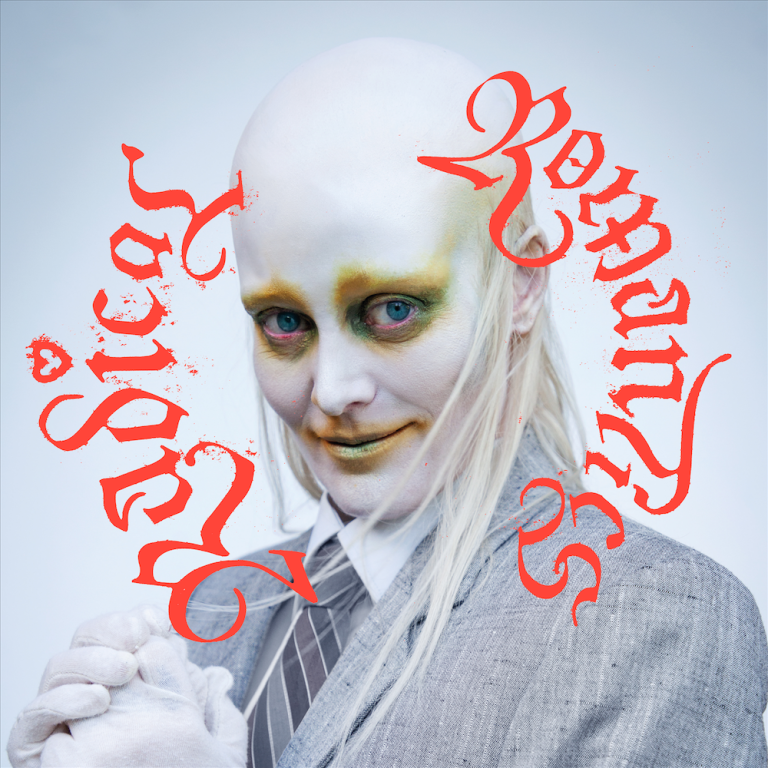Ever the shapeshifting entity, Fever Ray has always benefitted from transformation in one form or another. From the ghostly pale-faced skeletal look in the “If I Had A Heart” video (from their 2009 monochromatic self-titled debut album) to the bald beige latex-wearing orgiastic figure that traverses their way through the videos from the follow-up album Plunge, Karin Dreijer has never been one to look the same record to record. (Much the same can be said of when they were in The Knife too, donning a variety of different masks over the duo’s career.)
Musically, Dreijer has always been pushing themselves out of boxes. Fever Ray seemed to blossom like vines and poisonous flowers from The Knife’s Silent Shout, whereas Plunge practically veered into celebratory declarations of sexuality and protest with an exuberant crash. Six years on, Dreijer’s new album Radical Romantics changes up the view once again. Existing somewhere between the two albums that preceded it, Radical Romantics finds Dreijer in a much more contemplative mood, but equally not without a fiery spirit. “It’s a more calm and peaceful album than the last one…a bit like sitting down and having landed: OK, this is what I need,” they said in a recent interview with Pitchfork. There always has to be the morning after the party.
If Plunge was an album of fucking, then Radical Romantics is the album of loving. While its predecessor was intent on calling out and dismantling all the destructive societal systems that fed the daily grind (“Destroy nuclear! Destroy boring!”), Dreijer’s new album occupies a different headspace. Here they explore intimacy (“Shiver”, “Tapping Fingers”) and euphoric new love (“Carbon Dioxide”), but equally they have not put down their sword. The Trent Reznor and Atticus Ross-produced “Even It Out”, with its Phantom of the Opera synth riff and gnarling guitar, threatens a school bully, but equally is pointed at those high up in society who think they can fleece the general populous; “There’s no room for you / and we know where you live / one day we might come after you / taking back what’s ours”.
It’s the everyday love that makes up the heart of Radical Romantics though, the kind that requires work and compromise so as to have a long-lasting flame. Over the glassy synths of “Looking For A Ghost”, Dreijer confides “I like it like this / steady like this”, while on “North” they pose “What if I told you in the whole wide world / there’s no place I’d rather be / than with you?” with a low exhale, like a partner nestling into the chest of their loved one after a double shift at work. Although Dreijer often presents themselves as strangely exaggerated characters in videos, moments like these described – even with their formant shifted voice – are the human foundations that hold up Fever Ray’s more raucous and frenzied moments.
The two characters in the videos for “What They Call Us” and “Kandy” are a good representation of what Dreijer captures in their music; this push and pull of smirking pencil pushing innocence against a lustful, unhinged display of impulse. It’s there in the voice, too (or should that be voices?), Dreijer going from helium wolf-howling on “Shiver” to the defeated sigh of “What They Call Us”. It’s representative of the fluid identity of their songs too. Always one to play with perceptions, Dreijer shifts perspectives throughout. They begin the album with an apology: “First I’d like to say that I’m sorry / I’ve done all the tricks that I can.” A soft approach to garner the listener’s attention like a thwarted female character, but equally a worn out cry for help from a queer context.
Come “Kandy”, there’s an existential terror in the hollowed out low voice (“what if I die with this song inside”), and by the end of the record there are simply no words. Originally penned as a score to Ingmar Bergman’s Vargtimmen, “Bottom of the Ocean” closes the record on a curious note. A seven-minute comedown of “ohhs” and glacial shifting drones, the track seems equally like a fitting wordless coda after expelling a series of inner thoughts as much as it is a shrugging addendum, like Dreijer wasn’t sure how to end the album.
It’s the album’s weakest link, and at the end it’s easy enough to excuse. Oddly the other dips are those where Dreijer teams up with her brother Olof, making for the closest thing we’ll likely ever get to new music from The Knife. While “New Utensils” jitters with a chrome sheen and “Kandy” glistens with a familiar crooning sway (no doubt because it features the SH101 synthesizer used for “The Captain”), they don’t explore any particularly new territory. “Carbon Dioxide”, on the other hand, bristles with electricity and a plethora of reference points. Co-produced by Bristol’s Vessel, the song is all colours and shifting energies, becoming an all-out effervescent rave by its end.
A Fever Ray track doesn’t need to transform or pivot to stand out though. “North”’s low grumble evokes the desolate reverberations of “Keep The Streets Empty For Me”, while “What They Call Us” has an assured footing, not feeling the need to adorn itself with excessive decoration. Radical Romantics gives a best of both worlds scenario, even if it does end up leading you back to either of the albums that came before it. This is Dreijer taking stock, surveying their surroundings and making a deliberate plan on where the next place is. No doubt it’ll be some time before we see and hear where that is, but until then, Radical Romantics offers enough detail, emotion, and vigour to tide us over until the next inevitable shapeshifting moment.

